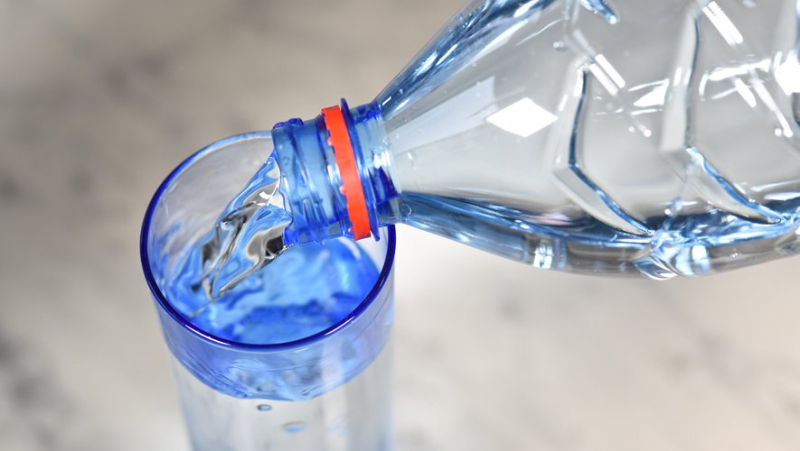Mineral water scandal: Vittel, Perrier, Contrex, Cristaline… what are the risks of drinking illegally purified water ?

Nestlé Waters et Sources Alma sont accusées d'avoir eu recours à des traitements interdits sur certaines de leurs eaux minérales. ILLUSTRATION MAXPPP – Jean-Luc Flémal
The consumer defense association Foodwtach filed a complaint this Wednesday, February 21, against Nestlé Waters and Sources Alma. In question, the use of illegal practices for treating their mineral waters. So what are the risks for consumer health ?
"No one, not even a multinational like Nestlé, is above the law". This is what Ingrid Kragl, the information director of Foodwatch, said in a press release published this Wednesday, February 21. The consumer defense association has in fact announced that it is filing a complaint against Nestlé Waters and Sources Alma.
Nine offenses
The two companies to which many well-known mineral water brands belong, such as Perrier, Vittel, San Pellegrino or Hépar (Nestlé Waters) and Cristaline, Courmayeur, Thonon or St-Yorre (Sources Alma ) are accused of having used prohibited ultraviolet treatments and activated carbon filters on some of their waters to maintain "their food security".
Foodwatch denounces "massive fraud" and notes nine infringements of the European directive on mineral waters, to the Consumer Code and the Public Health Code.
Beyond the regulatory aspect, there is also the question of the health risk linked to the consumption of these illegally purified mineral waters. Is it dangerous for the consumer ?
Activated carbon and the UV filter, "effective" solutions
"There is no health risk but people are tired of being taken for idiots", says Karine Jacquemart, general manager of the FoodWatch France association, at the microphone of RMC.
The World Health Organization (WHO) also confirms that it is not dangerous to consume these illegally purified mineral waters. In its Quality Guidelines for Drinking Water (2017), the WHO even cites activated carbon among the effective solutions for purifying running water against chemicals and various pollutants. The UV filter technique (also called solar disinfection) is also recognized by the WHO as a method of treatment and good conservation of water at home.
Same story from the Ministry of the Economy which ensures that’"no health risks linked to water quality bottled has not been identified at this stage". Clearly, the implementation of treatments would be a deception, but from a health point of view, their implementation would strengthen security.
"It is not prudent to conclude that the health risk is under perfect control"
According to Nestlé, the use of certain wells used for the production of Hépar and Contrex is currently "suspended".
But Igas inspectors say that while the "level of compliance is high on bottled water, it does not would not be prudent to conclude that the health risk, in particular the microbiological risk, has been perfectly controlled". More worrying, Igas explains that "the treatments implemented” l’have been to “compensate with a defect quality of the resource, their removal is likely to cause a health risk.




